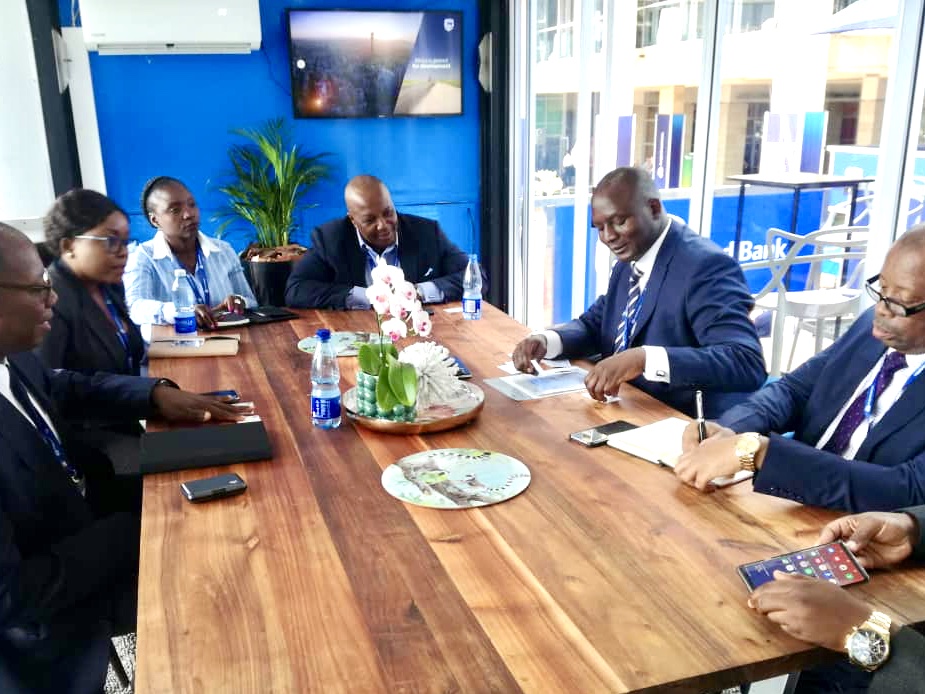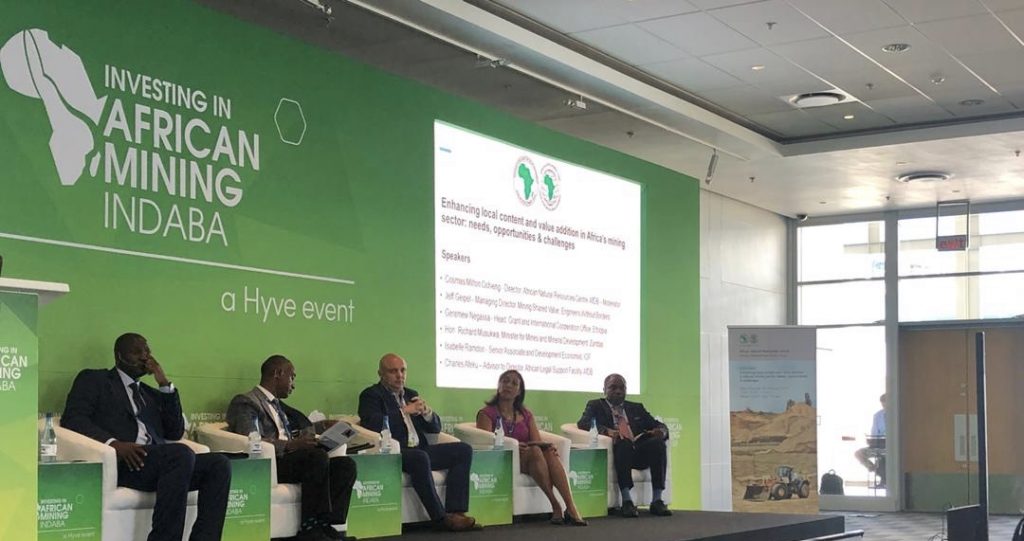CAPE TOWN (Business Telegraph) – Mines Minister in Africa’s red metal producer Zambia, Honorable Richard Musukwa, spoke at the Cape town Mining Indaba on a panel discussion on Tuesday 04 February with focus on the need to foster local content and improved value chains that allow for beneficiation in communities mining occurs.
“Thanks for inviting us and allowing us to speak at this platform. Earlier I saw somewhere written mining can be a blessing and curse. In Zambia we want to believe mining should be a blessing and I believe I speak for Africa too. Most mining explorations are exploited by multinationals some of whom are present here and are endowed with resources, expertise and capital. Africa in turn is endowed with resources,” Musukwa said.

Stakeholders increased expectations in beneficiation. Zambia has embraced Foreign Direct Investment (FDI) in the mining sector. Zambia and Africa as whole would love shared values. Communities where mining occurs continue to sing louder to ensure that they become part of operations through local content with reference to supplier and contractors. Mining houses with international footprint have a duty to deliberate on building capacity in local communities they operate in to help build up the mining value chain. To that effect when this is harnessed, job creation and wealth creation will be enhanced locally. Not only do we expect a fair Return on Investment (ROI) but host communities and the country (stakeholders) that house these resources expect a balance in benefits. There exist gaps in the beneficiation equation and growth of local content and it is to that effect that Zambia has through the Ministry of Commerce Trade and Industry developed a National Local Content Strategy in an effort to promote the same. This was aimed at fostering business linkages from small to medium sized scale to corporates both at local and international level.

Local content strategy drive. The local content strategy resonates with Zambia’s Seventh National Development Plan (7NDP) aimed at promoting the traditional exports such as copper to Non Traditional Exports (NTE) such as cobalt, gold and gemstones in the quest to alleviate poverty and boost job creation. Local content in the mining sector envisages post privatization in the 1990’s when Zambia’s inflow of Foreign Direct Investment (FDI) has increased which fueled an increase in sources of mining inputs due to registration of provision in the mines and minerals which favored the import as opposed to purchase of local manufactured goods.
Zambia’s $2-$4billion procurement value chain.Currently Zambia’s procurement value chain is $2-$4billion according a World Bank Report and of this a third of business share accrues to the local market. The Zambian government targets to optimize local content and value addition. Earlier the Africa Development Bank (AfDB) commissioned a study to develop a framework design for a mining sector driven local content policy. The government of Zambia undertook another study to evaluate the mining development value chain to identify opportunity for localizing input and services in a manner that supports linkage formation with the economic sector.

The study led to the enactment of statutory instruments to enforce section 20 of the Mines and Mineral Act to compel localization of inputs into the mining sector and the implementation of the local content manufacturing and service industry to boost job creation, widen government revenue collection and above all improve the trust gap between mining houses and the communities.
Mining is for the private sector. The Zambian government continues to acknowledge the private partnership in running the mines as critical and that as the state will allow the industry to continue being run by the private sector as the government focuses of creating a more conducive environment.
The Kwacha Arbitrageur.

